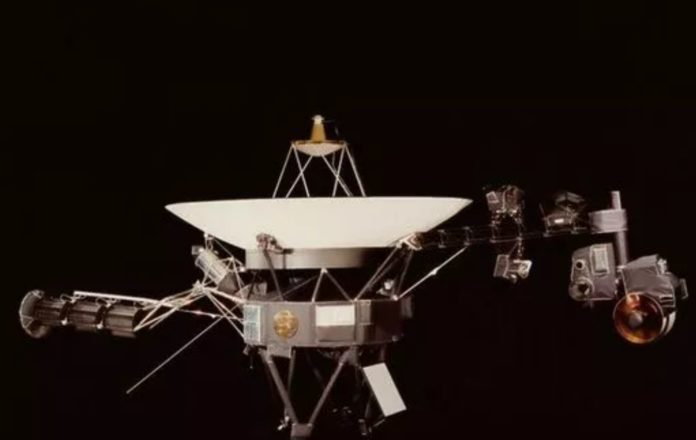The unusual data returned by the Voyager spacecraft from the frontier of our solar system has perplexed NASA scientists.
The space agency has attempted to come up with an explanation for the “impossible” data readouts returned by the probe’s orientation system. The Voyager 1 spacecraft, launched in 1977, is the farthest probe ever sent into space by man. It is currently traveling through the solar system’s outskirts, operating in the “interstellar medium” outside the influence of the Sun.
After scientists saw strange data being sent by the probe, the agency’s engineering team is investigating a new mystery.
While the spacecraft is successfully receiving and executing commands from Earth, NASA notes that the readouts sent from the probe’s attitude articulation and control system (AACS) do not accurately reflect what is happening on board Voyager 1.
The AACS is in charge of maintaining the Voyager’s attitude and ensuring that its antenna is directed precisely towards Earth so that data may be delivered to NASA.
“All signs suggest the AACS is still working, but the telemetry data it’s returning is invalid,” NASA said in a statement.
“For instance, the data may appear to be randomly generated, or does not reflect any possible state the AACS could be in.”
So yet, no onboard fault protection systems, which are supposed to put the Voyager 1 into “safe mode,” have been triggered by this issue.
In this mode, the probe performs just critical tasks, providing engineers time to diagnose and fix the problem.
The signal from Voyager 1 hasn’t degraded either, implying that the high-gain antenna is still oriented correctly with Earth.
NASA added: “The team will continue to monitor the signal closely as they continue to determine whether the invalid data is coming directly from the AACS or another system involved in producing and sending telemetry data.
“Until the nature of the issue is better understood, the team cannot anticipate whether this might affect how long the spacecraft can collect and transmit science data.”
Given the spacecraft’s present distance from Earth of 14.5 billion miles (23.3 billion kilometers), sending a message to Voyager 1 and receiving a response will take about two days – a delay the mission team is used to.
“A mystery like this is sort of par for the course at this stage of the Voyager mission,” Suzanne Dodd, project manager for Voyager 1 and 2 at Nasa’s Jet Propulsion Laboratory in Southern California, said.
“The spacecraft are both almost 45 years old, which is far beyond what the mission planners anticipated.
“We’re also in interstellar space – a high-radiation environment that no spacecraft have flown in before.
“So there are some big challenges for the engineering team.
“But I think if there’s a way to solve this issue with the AACS, our team will find it.”
Image Credit: Getty
You were reading: NASA investigates what is actually happening onboard Voyager 1
